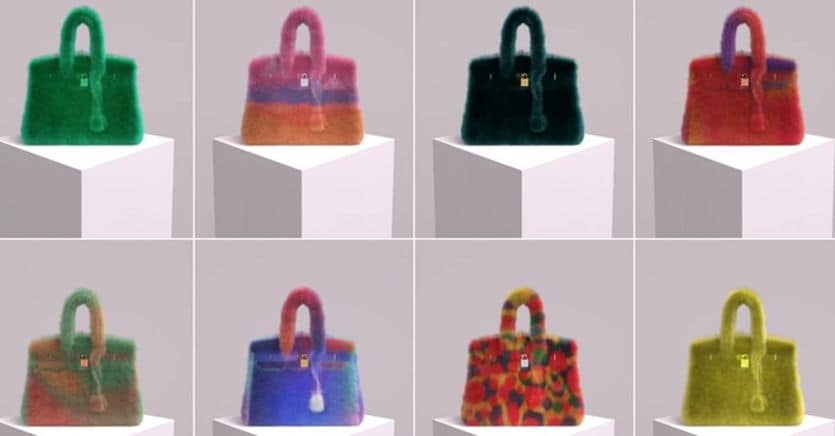United States District Judge Jed Rakoff, in early May, dismissed the filing motion of Metabirkins artist Mason Rothschild in a one-page order after oral discussion on whether the MetaBirkins’ NFTs infringed or minus the rights to the famous Hermès Birkin luxury bags.
The artist has firmly argued that the First Amendment of the American Constitution protects his right to disseminate his MetaBirkins works to the public, while Hermès, who sued Rothschild last January, believes that the artist himself, creating and selling the NFT of MetaBirkins, has infringed the brands of the famous luxury bag.
What happened in court.
During the hearing held to determine whether the ongoing trial should be closed or not, Mason Rothschild with his attorney and Harvard Law School professor Rebecca Tushnet argued that MetaBirkins fall within the First Amendment protection of free speech. and that the Nft MetaBirkins are protected by the previous case “Rogers v. Grimaldi “of 1989 which established the principle of the” lawfulness of the exercise of artistic expression “. The Rogers case v. Grimaldi concerns the director Federico Fellini sued for the 1986 film “Ginger and Fred”, by the real Ginger Roger, a very famous actress of the time who claimed that the director had violated her right to privacy and had reproduced facts of the On the basis of this precedent, the Court, rejecting Rogers’ accusations, had established that the users of a trademark are protected from infringement claims if their use is: a) an artistic expression b) not explicitly misleads consumers. The artist’s defense thus specified that what Rothschild did with the NFT MetaBirkins differs from the creation of normal consumer products, as the NFTs are considered an “expressive work” and stated that failure to reject the accusation would have had a “chilling effect” on artists who want to depict famous brands and their freedom of expression.
Hermès countered by insisting that the very way Mason Rothschild used the MetaBirkins name created a risk of confusion for consumers between MetaBirkins NFTs and the Hermès brand.
Judge Rakoff’s sentence
At the end of May, Judge Rakoff issued a weighty order in which he crystallized some salient points. A fundamental question was whether Rogers v. Grimaldi to balance artistic expression with brand protection. The Judge replied affirmatively to this question, despite the objection of Hermes’ lawyers, stating that «since NFTs are simply codes that indicate where an image is and authenticate it, the use of NFTs to authenticate an image and allowing traceable subsequent resale does not make the image an asset without First Amendment protection any more than the sale of numbered copies of physical paintings renders the paintings assets for the purposes of the Rogers case. ‘ Precisely for this aspect, the Judge defined the prevalence of the artistic-creative element, giving reason to the artist.Relating instead to the fact of confusing consumers, Hermes in his acts relied on many words and actions of Rothschild himself to make assert their reasons, which have not escaped Judge Rakoff. The Judge noted that the artist allegedly created social media channels called MetaBirkins, advertised MetaBirkins as “not your mother’s Birkin” and even complained about the counterfeiting of his MetaBirkin NFTs. The prosecution in turn argued “that Rothschild himself made statements that led to consumer confusion.” The Judge, accepting Hermes’ position in the order, thus established that: “since the amended complaint contains sufficient accusations of explicit deception, both as a function of the likelihood of confusion, and according to Rothschild’s theory of the analysis of explicit deception , the Court dismisses the application, upholding the trademark infringement complaints. ”Hermes wins this first round represented by a team of Baker & Hostetler which includes partners Gerald Ferguson, Oren Warshavsky, Tracy Cole and Deborah Wilcox, Rothschild is represented by Lex Lumina study, recently established, whose team is made up of managing partner Rhett Millsaps II, Harvard law professor Rebecca Tushnet, UCLA law professor Mark McKenna and New York University law professor Chris Sprigman.
The consequences
On our side, whether Big Law or the Academy wins, chance will certainly contribute to generating very interesting educational material in the future. deal with the interrelationships between copyright and respect for trademark rights. The community orientation tends to make freedom of expression and artistic freedom prevail over trademark law above all when this is inserted in a different context and does not damage the name of the owner. The use of the trademarks of others should always be considered lawful in a context where the trademark, operating in a narrative framework, is
